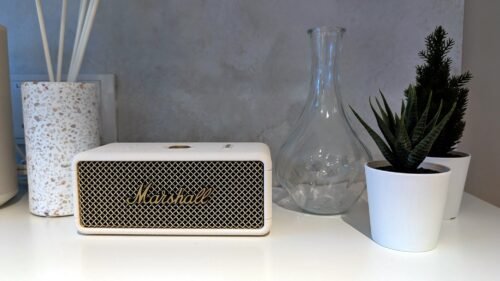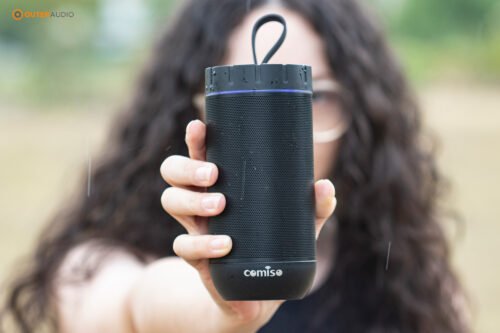Where great sound ends—and speaker damage begins.
Let’s be honest—most of us buy Bluetooth speakers with the hope that they’ll get loud. Whether it’s for a backyard hangout, a beach trip, or just filling a room with your favorite playlist, volume feels like part of the fun. And to be fair, most decent speakers can get loud—some of them surprisingly so for their size.
But there’s a difference between using your speaker’s full potential and pushing it past what it’s designed to handle. Yes, it is possible to damage your Bluetooth speaker by consistently playing it too loud, and no, most people don’t realize they’re doing it until it’s too late.
Safe Listening Levels—For the Speaker, Not Just Your Ears
Most Bluetooth speakers are tuned to sound clean at around 60% to 80% of their maximum volume. That’s the sweet spot where you’re getting strong output without overloading the drivers or internal amplifier. Once you push past that, you’re not just flirting with distortion—you’re straining the speaker’s entire system.
Just because your speaker can go to 100% doesn’t mean it should, especially for long sessions. Volume limits aren’t just about protecting your ears. They’re also about protecting your gear.
What Happens When You Push Too Hard
When you crank a speaker past its comfort zone, you’re asking more from it than it can safely deliver. That stress usually shows up in one of two ways:
1. Distortion
This is when the speaker tries to reproduce sound but starts losing accuracy. The signal gets clipped, and what should be a clean tone turns into a harsh, fizzy mess. In small doses, it’s annoying. Over time, it’s destructive.
2. Heat Build-Up
The harder the amplifier works, the hotter it gets. In tiny, sealed Bluetooth enclosures, there’s not much room for heat to dissipate. Long sessions at full volume can eventually wear down components or reduce battery health—not instantly, but gradually.
How Distortion Damages Drivers
One of the most dangerous things for any speaker driver is sending it a distorted or clipped signal, especially at high volume. When that happens, the cone moves in irregular patterns—or worse, too far—and the delicate coil attached to it can overheat or misalign.
This kind of stress doesn’t usually cause a dramatic failure right away. Instead, it slowly degrades the materials inside the speaker, loosening adhesives, warping suspension parts, or causing buzzing that wasn’t there before.
In short: once a speaker starts distorting, it’s not just sounding worse—it’s hurting itself in the process.
Signs You’re Pushing Your Speaker Too Hard
If you’re not sure whether you’re in the danger zone, listen closely. The warning signs usually show up before actual damage occurs:
- Bass starts to sound mushy or disappears entirely at high volume
- Vocals and high notes become sharp or harsh instead of clean
- You hear buzzing, crackling, or rattling that wasn’t there at lower levels
- The speaker gets unusually hot, even when it’s not in direct sun
If you’re hearing any of these, it’s time to dial things back.
Enjoying Loud Music Without Killing Your Gear
The good news? You can still enjoy bold, room-filling sound without shortening your speaker’s lifespan. It’s all about using it wisely.
Try this:
- Keep the volume between 60% and 80% for most sessions
- Let the speaker rest after long, loud playbacks, especially outdoors in the heat
- Use two speakers paired in stereo when you want more output
- If you’re hosting a party or using it in a large space, consider size-appropriate gear—tiny speakers aren’t built for crowd-level output
Final Thoughts
Playing music loud feels good, but there’s a fine line between big sound and long-term damage. Your Bluetooth speaker might handle short bursts at full blast, but if you treat it like a mini PA system, you’re asking for trouble.
Volume should never come at the cost of clarity or longevity. The best Bluetooth speakers don’t just sound good loud—they sound good without needing to be pushed to the edge. Respect the limits, and your gear will keep the music going for years, not months.





